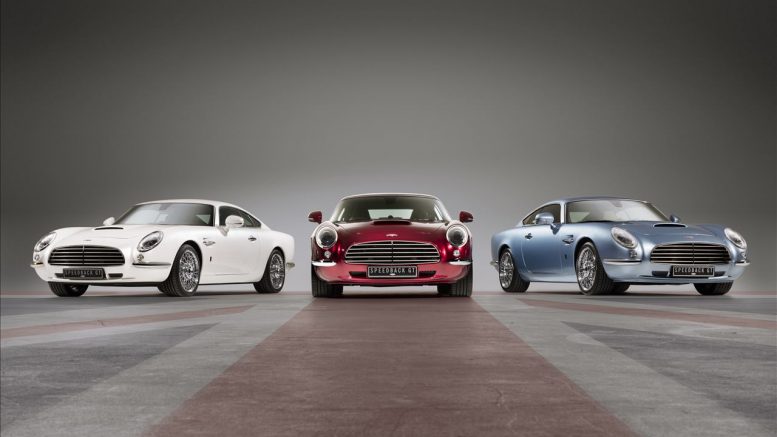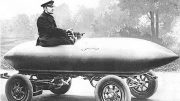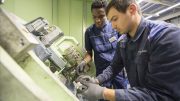A British businessman has engineered a renaissance in 1960s car design — but it was never this good back then, writes James Fitzgerald.
They say a picture speaks a thousand words — so perhaps this should have been a montage, instead of a wordy profile on David Brown and his fabulous bespoke cars.
Mr Brown has traversed the aesthetic spectrum: having started out making gargantuan earth-moving vehicles, he has turned his attention to sinuous, muscular cars that evoke a more elegant epoch — the Speedback GT and, more recently, the Mini Remastered hark back to the Jet Age and bohemian social excursions of the 1960s, respectively.
Mr Brown, who stems from Harrogate, North Yorkshire, joined his father’s company, DJB Engineering, in 1972, where expansion soon followed to sites in Dunstable, Luton, Peterlee and Stockton, and the acquisition of Bedford trucks from General Motors. After selling the company to Caterpillar in the mid-1990s, he turned his attention to “lifestyle” companies, which included high-end restaurants, motorbike dealerships and a successful chain of clothes shops. His portfolio currently includes a luxury stone specialist, a brewery making premium, “progressive” ales, and a high-end property developer.
David Brown Automotive focuses all of its production efforts at its Silverstone facility, eschewing the offshoring tendencies of most modern manufacturers. All this idealism is reflected in the price tags.
The classic car market remains in robust health and is estimated to contribute £5.5bn to the UK economy, according to the Adams Group. Rare exotic cars are now viewed as works of art by buyers, with a Ferrari GTO fetching $38m at auction last year. This creates a dilemma for owners who wish to race their cars or otherwise show them off in public. As a result, the market in recreations is booming, with E-Type Jaguars and various classic Mercedes models available as new.
Mr Brown says his inspiration for the Speedback came from a classic car rally in the south of France, where the vehicle he was driving broke down, and he was forced to hire a mass-produced hatchback to complete the race. It was during this last leg that his imagination went to work on “a car that encapsulates all the beautiful design hues of the Sixties but also modern-day performance, conveniences, safety and technology”. The Speedback GT was launched in 2014.
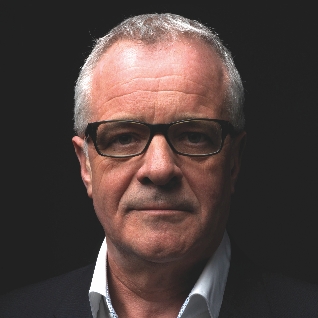
David Brown
“Since the very beginning, the business has been entirely privately funded, and using my experience in business over the last 45 years. I know that when there are challenging decisions to be made, whether it be further investment in facilities, staff or products, we can expand and approach these challenges using clever and dynamic ways,” says Mr Brown.
David Brown Automotive would seem to inhabit a middle ground, between pure rebuilds and restorations of original models — a hybrid of modern performance that evokes classic marques but also establishes a unique brand in its own right.
“We are proud to work with a range of skilled, traditional and highly technical suppliers, with an emphasis on quality and refinement,” says Mr Brown. “Almost all of our suppliers are based in the UK, including traditional coach-building techniques such as rolling each body panel on English Wheels and hand-brushing the exterior brightware, alongside fully modern 3D printing techniques, modern measuring and manufacturing processes.”
The facility in Silverstone is able to build between five and seven GT’s a year, depending on specifications. “Our prototype vehicle was developed and refined with over 270 design and engineering changes, resulting in the first customer Speedback GT, which was delivered to its Europe-based customer in early 2016.”
He says most of his clients drive their cars on a regular basis. The windscreen of a Speedback has the gradient and curved sweep of the C-4 Argonaut prop planes used by BOAC in the 1950s. Inside, this panoramic view and low-slung seat position add to the sense of freedom, in contrast to the claustrophobic cabins of some other classic and modern super cars.
Under the hood sits a five-litre supercharged engine that delivers 510 horsepower as standard. “Just like the classic coachbuilders of the early 20th Century, Speedback is coachbuilt on an existing platform derived from a platform similar to the Jaguar XKR convertible and current F-type, which we keep a stock of,” says Mr Brown.
Rare exotic cars are now viewed as works of art by buyers, with a Ferrari GTO fetching $38m at auction last year.
It would seem that Brown has forgone the beast in his pursuit of beauty. But what possible overlap could there be between industrial machines and slick coupes? “When I was running the business that my father, David Brown, founded, we built large, off-highway articulated dumper trucks and telescopic handlers. Exactly the same engineering and development processes, risk mitigation strategies and constant searches for efficiency not to the detriment of quality were absolutely fundamental in day-to-day operations.”
Wise and timely investments and steady, considered growth will also be vital ingredients to this latest automotive venture, he says.
Despite the low production numbers and high man hours on both the Speedback GT and Mini Remastered, Mr Brown is adamant the financial numbers will add up. “No businessperson would create a company not to be profitable.”
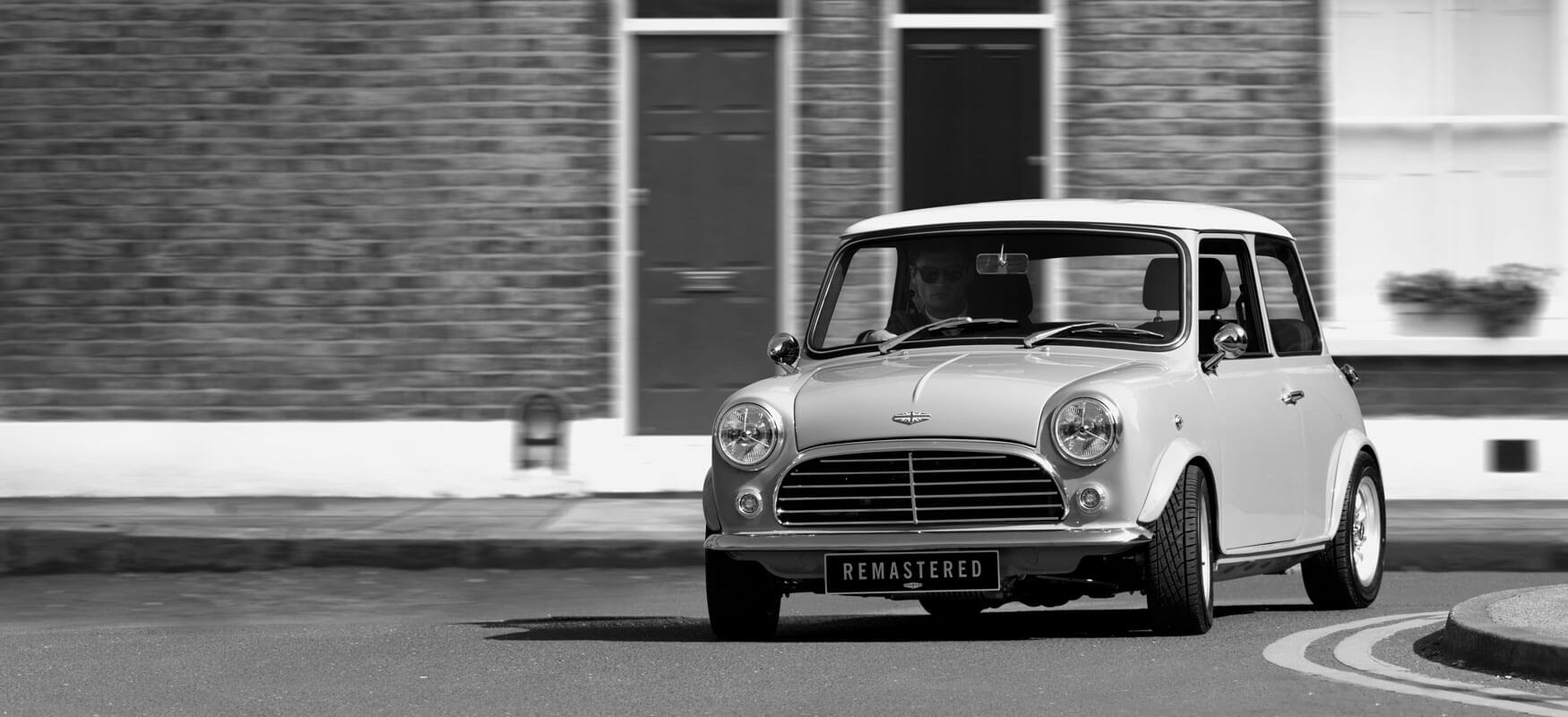
The brochure describes Mini Remastered as combining “the iconic Sixties car’s looks with Speedback GT design cues, unique coachbuilding construction, modern technology and luxury hand-finished materials.”
Alec Issigonis, who first conceptualised the Mini, would no doubt be delighted to see his original utilitarian design given the bespoke treatment, with refinements to the exterior shape and added structural beams and support struts. Each car also undergoes a full E-coat process to ensure the body is protected for a lifetime. A laborious sound-proofing process takes cabin comfort way beyond its original eccentric rattles.
David Brown Automotive focuses all of its production efforts at its Silverstone facility, eschewing the offshoring tendencies of most modern manufacturers. All this idealism is reflected in the price tags.
The UK retail prices — from £624,000* for the Speedback GT and £90,000 for Mini Remastered — are “predominantly based on research and development, as well as the cost of the premium materials and the time taken to build each car. On average, a Speedback takes just over 8,000 hours to build, while each Mini Remastered takes over 1,000 hours from start to finish.”
The newly released Speedback Silverstone Edition and Mini Remastered will be on display at the London Motor Show from May 17-20.

Image Credits: David Brown Automotive Ltd
* Figures when the article was first published did not include VAT
